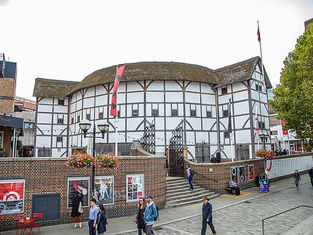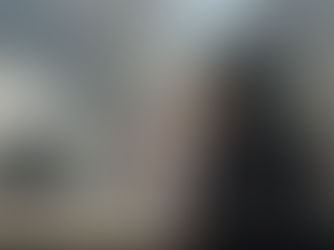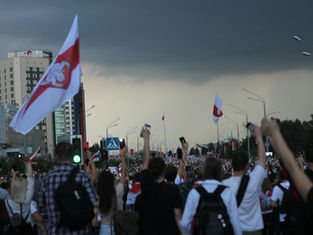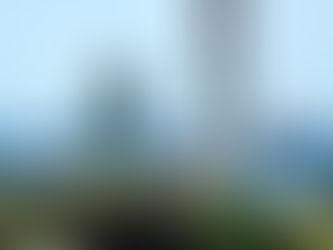top of page
Articles


Nagorno-Karabakh: War Fails to Resolve the Conflict
Imagine Boris Johnson ordering the bombing of Edinburgh because the Scots voted for independence in a referendum, or the British Government declaring war against Northern Ireland because it wished to join the Republic of Ireland. Unlike the political dialogue and the search for legal remedies that dissatisfied nations of the United Kingdom utilise to resolve their conflicts, the Armenians of Nagorno-Karabakh, who have been natives of the territory for centuries, have been the

Hratch Tchilingirian
9 min read


Mary Wollstonecraft’s Political Philosophy: In Conversation with Sylvana Tomaselli
Sylvana Tomaselli is a historian and lecturer in political philosophy at the University of Cambridge, where she is a fellow of St John’s...

Maria Stella Sendas Mendes
10 min read


All the Law’s a Stage! Shakespearean Insights and their Resonance Today
Shakespeare understood much about the role of law in society, possibly thanks to his direct links with London’s Inns of Court. The Inns...

The Rt Hon Lady Arden
26 min read


A Symphony of Defiance: How Music Spearheads Sikh and Punjabi Articulations of Political Resistance
Bury [music] so deep under the earth that no sound or echo of it may rise again. —Attributed to the Mughal Emperor Aurangzeb[1] Over...

Jeevan Singh Riyait
8 min read


Capturing the Truth
On 11 September 2001, as I walked to the Rome bureau of The New York Times , I stopped in a café on the Campo di Fiori to see why a...

James Hill
11 min read


Freedom of Expression in Belarus after the 2020 Election
auferre, trucidare, rapere, falsis nominibus imperium, atque, ubi solitudinem faciunt, pacem appellant (To ravage, to slaughter, to usurp under false titles, they call empire, and where they make a desert, they call it peace.) —Tacitus, Agricola Despite having a democratic constitution, Belarus has never been a democratic country, before or after the 2020 presidential elections. This has not stopped the authorities stating otherwise. Alyaksandr Lukashenka came to power amid

Volha Siakhovich
16 min read


First Crimea, then Donbas, now Borscht
Russia annexed the Crimea and started a war in the Donbas region of eastern Ukraine, but that wasn’t enough; now the Kremlin intends to...

Yevhen Klopotenko
5 min read


New Technology, Ancient Battle
Since the detection of massive Russian interference in the 2016 American presidential election, there has been a morass of studies analysing the manipulation, fakes, and distortions, particularly on the Internet, which seem to assault the very notion of truth. In the US, we have been horrified and perplexed by the huge numbers of people who believed, without much evidence, that there had been massive fraud in the 2020 presidential election, of whom hundreds attacked the bui

Askold Krushelnycky
11 min read


Theory and Politics under Technofeudalism: In Conversation with Yanis Varoufakis
As a theorist, economist, politician, author, and co-founder of two transnational democratic and progressive movements, Yanis Varoufakis is a political Renaissance man who has captured some of the main social, political, and economic movements of our times. He catapulted to fame as Greek finance minister in 2015 where he displayed a strong opposing voice to European powers in a time of turbulent financial crisis. Varoufakis has continued to be a leading voice for change. In 2

Teresa Turkheimer
29 min read


John Hume: The Achievement and Limitations of a Man in War
I have not read all the tributes that have been made to John Hume since his death in 2020, but I doubt if many—perhaps any—of them have got to the heart of his real achievement, which was twofold. On the one hand, he prevented a settlement of Northern Ireland’s constitutional status that seemed to be a real possibility in the late seventies and early eighties on what might have been called ‘Unionist’ principles (though it could have resulted in the end, or radical decline, of

Peter Brooke
20 min read


The Twenty-First Century: A Bumpy Ride
Introduction COVID-19 should not have struck us so unawares: similar viruses, SARS and MERS, had emerged within the last 20 years, and global pandemics had been widely discussed. So why were even rich countries so unprepared? It’s because politicians and the public have a local focus. They downplay the long-term and the global. They ignore Nate Silver’s maxim: ‘The unfamiliar is not the same as the improbable.’ Indeed, we’re in denial about a whole raft of newly emergent th

Lord Martin Rees
18 min read


Art Lost and Found: In Conversation with Christopher Marinello
Christopher A Marinello is an expert in recovering stolen, looted, and missing works of art. A lawyer for over 38 years, Marinello began his legal career as a litigator, negotiating complex title disputes between collectors, dealers, museums, and insurance companies. In 2013, he founded Art Recovery Group, a specialist practice providing due diligence, dispute resolution, and recovery services for the art market and the cultural heritage sector. Marinello has overseen the dev

Alex Charilaou
10 min read


Judicial Conservatism: A Constraint on the HRA? An Analysis through the NI Abortion Case and Nicklinson
The purpose of the Human Rights Act 1998 (HRA) was to ‘bring rights home’, allowing people to protect their fundamental human rights...

Jack Bailey
13 min read


Law in a Time of Crisis
The United Kingdom has experienced two major political crises in the last five years. Brexit and COVID-19 are crises of very different kinds. But they have a significant feature in common whose implications will live with us for a long time. They are milestones in the demise of liberal democracy. The model which will replace liberal democracy is already emerging. It will be more authoritarian and less dependent on Parliamentary deliberation. It will view our society as a gr

The Rt Hon Lord Sumption
11 min read


The Many Forms of Vaccine Hesitancy
The COVID-19 pandemic has led to more than 176 million confirmed cases and over 3.8 million confirmed deaths. These numbers are likely dwarfed by the true rates of infection and death, which will remain unknown well into the future and will likely never be fully elucidated.[1] During this time, several countries have vied for the unhappy honour of being the worst affected by the pandemic, including Italy in early 2020, the United States through 2020 and early 2021, and most r

Amar Sarkar
25 min read


Private Collectors and the Public Institution: In Conversation with Philip Hoffman
Philip Hoffman is Founder and CEO of the Fine Art Group, which focusses on art advisory, investment, and philanthropy. At 33 he became the youngest member of KPMG’s Management Board and later served as its Deputy CEO of Europe. He also worked for Christie’s for 12 years. He regularly comments on the art market in the international press. The Frick Collection is widely regarded as one of New York’s finest galleries. From the interiors of Vermeer to the forests of Fragonard, an
Ollie Gerlach
7 min read


Shaping Taste in Changing Times at the Royal Academy: In Conversation with Rebecca Salter
Rebecca Salter is a painter. She is President of the Royal Academy of Arts, the first woman in the role. She has a strong interest in...

Lily-Rose Morris-Zumin
10 min read


Disciplinary Action and Freedom of Artistic Expression
I. The case of George Gavriel A recent incident in Cyprus re-ignited the debate about the limits of artistic freedom. George Gavriel, a director and teacher of art of a secondary education public school, who is also an artist in his leisure time, posted on social media in September 2020 pictures of some of his latest paintings.[1] Some of them have a clear anti-Church theme, with one picture in particular showing a naked Jesus riding a motorcycle and wearing a scarf with th

Achilles Emilianides
13 min read
bottom of page

